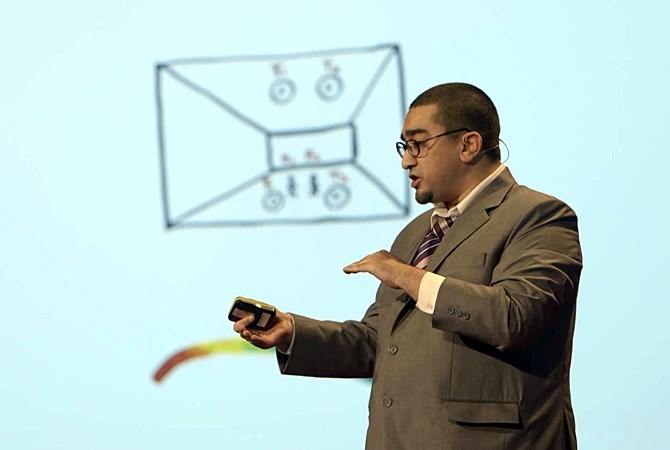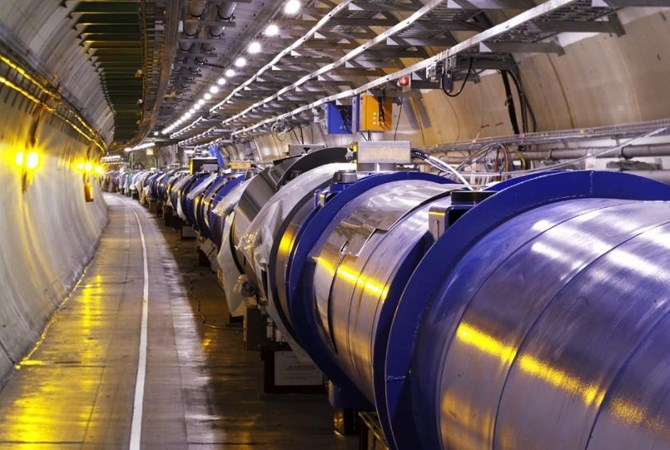
Mir Faizal is co-author of a paper that says the key to finding parallel universes may require the creation of miniature black holes using the largest machine in the world. He will be giving a talk at UBCO Oct. 31.
Image Credit: YouTube
October 20, 2016 - 6:30 PM
KELOWNA – If your understanding of string theory, black holes and parallel universes is lacking, an internationally-renowned physicist who is attempting to turn the physics world upside down is coming to UBC Okanagan at the end of the month.
Mir Faizal is co-author of a paper that says the key to finding parallel universes may require the creation of miniature black holes using the largest machine in the world.
The Large Hadron Collider is so massive it spans two countries in Europe. Faizal, who has been a visiting professor at UBCO for two years, says proving the existence of other universes may be untestable but he and his colleagues have devised an experiment that may shed some light on the reality of existence. They just need the collider.
“If string theory exists then you have to have higher dimensions,” Fiazal says. “Then the question comes, if we have higher dimensions, where are they?”

The Large Hadron Collider.
Image Credit: CERN
On Monday, Oct. 31, starting at 2 p.m. Mir Faizal will give a 90 minute talk that includes a brief introduction to string theory, the need for extra dimensions, how in these extra dimensions our universe behave and gravity’s rainbow.
Gravity’s Rainbow is a relatively new theory that says different wavelengths of light experience different gravity levels. It claims to disprove the big bang theory that tries to explain the origin of the universe.
Faizal says the Large Hadron Collider in Europe is the only way to test the theory, but if it proves true, it would fundamentally change our understanding of physics.
“We did some calculations last year and we came to know that the energy needed to detect these mini black holes should be more than we expected,” he says. “The experiment at CERN is one of the worlds most expensive experiments. If we do get the mini black hole then we know that parallel universes exist and that string theory exists and we’ll know that gravity’s rainbow is correct. We do expect a mini black hole.”
Faizal says his lecture is not just for physics students and that everyone is welcome.
“I make it so simple that a grade school student can understand,” he says.
To contact a reporter for this story, email Adam Proskiw or call 250-718-0428 or email the editor. You can also submit photos, videos or news tips to the newsroom and be entered to win a monthly prize draw.
We welcome your comments and opinions on our stories but play nice. We won't censor or delete comments unless they contain off-topic statements or links, unnecessary vulgarity, false facts, spam or obviously fake profiles. If you have any concerns about what you see in comments, email the editor in the link above.
News from © iNFOnews, 2016